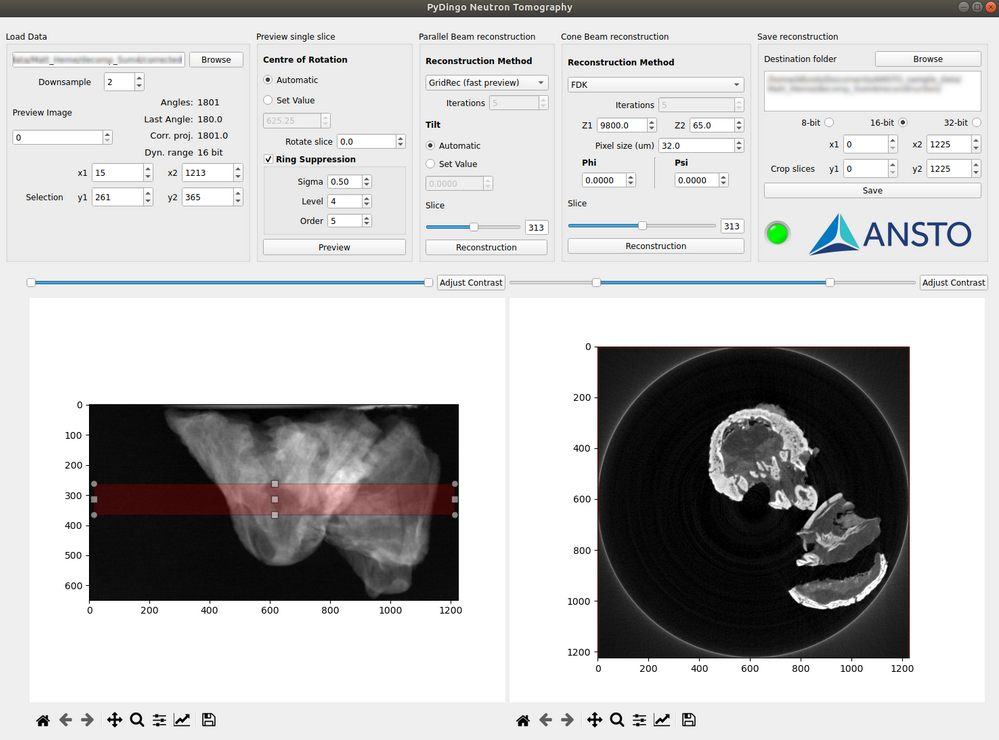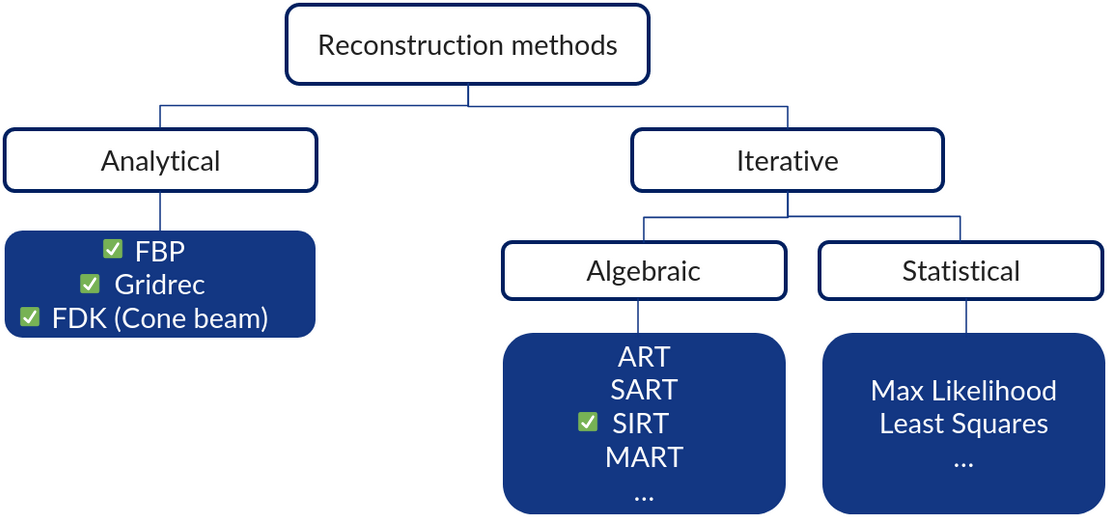Pydingo neutron CT reconstruction software
Pydingo is a Python library and a set of user-friendly interface for neutron tomography data processing. Pydingo is built on top of many (excellent) existing libraries for CT reconstruction and image processing with the aim of providing neutron tomography users with an simple interface to process their data. Pydingo was funded and developed for the Dingo instrument of the Australian Centre for Neutron Scattering at ANSTO.
If you are an imaging user of large scale facilities such as synchrotrons or neutron instruments, you probably know the feeling: after weeks or months of preparation and gruesome days of experiment run, you are left with gigabytes of data to process, which is exciting and terrifying at the same time.
If your day-to-day job is not image processing, Pydingo was built for you. With just the basic knowledge of tomography, and a little training, you should be able to run your image reconstruction at your leisure.

Structure
Pydingo is a Python library and three user interfaces for
- Data pre-processing,
- Tomography reconstruction,
- Beam hardening correction.
It also includes more advanced routines for multi-image stitching (useful for samples that are larger than the field of view) and for estimating image resolution using the Fourier ring/shell correlation method.
Image pre-processing includes corrections for dark/bright pixels, linearisation, averaging and selection of a region of interest.
The reconstruction routines include common artefact reduction methods such as ring artefact suppression and tilt misalignment correction. Reconstruction can be performed in parallel or cone beam and are GPU accelerated being built on top of the excellent ASTRA Toolbox.

Learn more
After an initial phase of internal use and debugging, Pydingo will be made freely available to the neutron imaging community. For more information, or to be updated on the progress of the release, feel free to contact us or the Dingo instrument scientists.